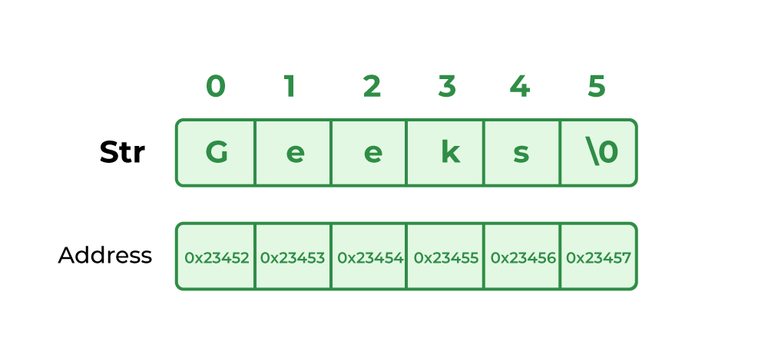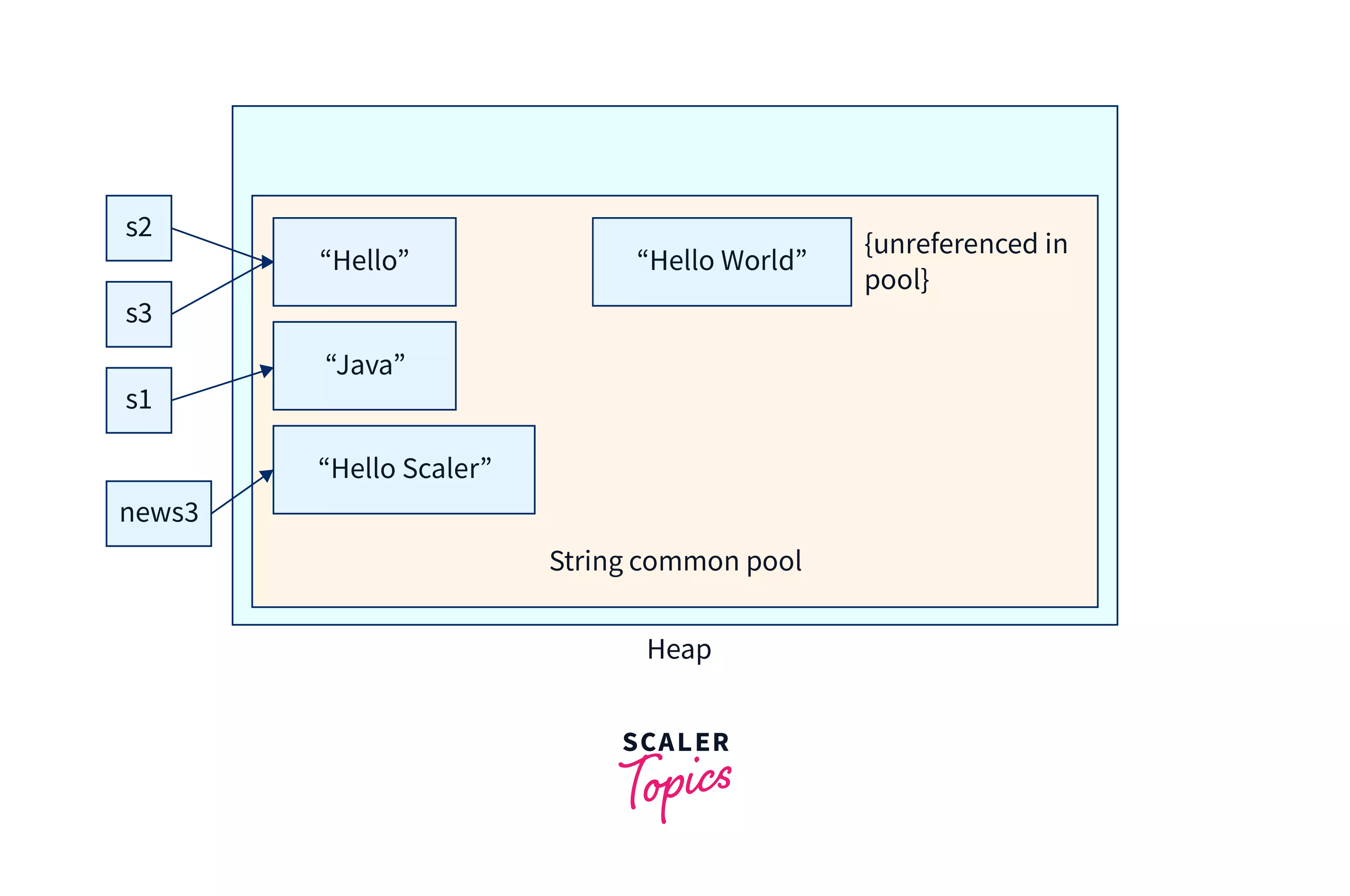Why Are Strings Immutable in Java? Enhancing Code Integrity
Why Are Strings Immutable in Java? Enhancing Code Integrity
Blog Article
Discovering the Benefits of Immutable Strings in Modern Programs Paradigms
In the realm of modern-day shows paradigms, the idea of unalterable strings stands as a keystone of robust software development. The benefits they offer go beyond mere convenience; they essentially modify the means data is managed within applications. By adopting unalterable strings, designers can guarantee boosted data stability, boosted string security, streamlined debugging processes, enhanced safety measures, and effective performance optimization. These advantages offer as a testimony to the profound effect that accepting immutability can carry the reliability and effectiveness of software application systems.
Improved Information Integrity

By protecting against the modification of string things, immutability gets rid of the danger of unintentional adjustments to the data they hold. This not just enhances the security of the information yet likewise improves the reliability of the code that relies upon these strings.
Immutability likewise sustains safer multithreading atmospheres, as concurrent accessibility to immutable strings does not pose the risk of information corruption through synchronised alterations. This residential property simplifies the process of handling strings in identical programming situations.
In significance, immutability functions as a safety shield around the data kept within strings, enhancing their integrity by making certain that when specified, their worths stay unmodified throughout the program's implementation.

Enhanced String Security
Unalterable strings enhance the thread security of programs by guaranteeing that when a string item is developed, its worth can not be changed. This residential or commercial property removes the danger of simultaneous threads attempting to modify the very same string concurrently, which could cause data corruption or irregular states in the program - Why are strings immutable in Java?. In a multi-threaded environment, where several strings gain access to and adjust information simultaneously, the immutability of strings provides a degree of security by guaranteeing that the data continues to be unchanged throughout its lifecycle
Simplified Debugging Processes
Provided the boosted string safety and security assisted in by unalterable strings, a considerable advantage emerges in the realm of streamlined debugging procedures. Unalterable strings, when developed, can not be modified, making it less complicated to trace the circulation of information and identify the resource of insects in a program. This immutability makes sure that strings continue to be consistent throughout the implementation of the program, decreasing the possibility of unexpected changes that can cause mistakes.
When debugging with mutable strings, designers typically come across problems where a string's worth is modified unintentionally, making it testing to pinpoint the root reason of a pest. However, with unalterable strings, the information remains unmodified, permitting developers to concentrate on examining the actual logic of the code instead than tracking down where and when a string was modified incorrectly.
Additionally, immutable strings streamline the debugging process by allowing much easier reproduction of pests. Since unalterable strings do not alter state, designers can recreate and research pests extra successfully, leading to quicker identification and resolution of problems within the codebase. This structured debugging workflow ultimately adds to higher software application top quality and enhanced general advancement effectiveness.

Boosted Safety And Security Measures
Enhancing information protection and strengthening system integrity, the application of immutable strings in software program applications contributes substantially to enhanced safety and security measures. Immutable strings, as soon as produced, can not be changed, supplying a critical defense versus harmful meddling or unauthorized gain access to. By making sure that delicate information kept in strings stays unchanged throughout the program's execution, the danger of data violations or visit this website shot attacks is significantly lowered. Why are strings immutable in Java?. Immutable strings additionally play an essential function in preventing common safety and security vulnerabilities such as buffer overflows and SQL injection assaults, as efforts check out this site to adjust string data at runtime are inherently limited.
Moreover, the immutability of strings enhances the predictability of program behavior, making it less complicated to validate inputs and protect against unanticipated modifications that might jeopardize safety. This predictability simplifies the process of auditing and validating code, allowing developers to determine potential safety and security technicalities better. Overall, incorporating immutable strings right into software application development techniques not just enhances the toughness and reliability of applications but additionally enhances their resilience against protection risks.
Efficient Performance Optimization
Building upon the structure of raised safety procedures achieved via the use of unalterable strings, a crucial facet to take into consideration in software growth is reliable performance optimization. When dealing with mutable strings, operations like concatenation or substring creation commonly cause the creation of new string objects, leading to memory expenses and boosted processing time. Nevertheless, with unalterable strings, these procedures can be optimized to enhance efficiency. By allowing strings to remain continuous and unchangeable, immutable strings help with better memory monitoring and caching chances, ultimately enhancing the total performance of the software.
Since immutable strings can not be changed as soon as more developed, they can be shared across threads without the threat of unexpected changes, lowering the need for synchronization devices and boosting concurrency. Immutable strings streamline debugging procedures as designers can trust that a string's value will continue to be consistent throughout the program's execution, getting rid of prospective mistakes triggered by mutable state changes.
Final Thought
In final thought, the advantages of making use of immutable strings in contemporary shows paradigms can not be overstated. Boosted data honesty, improved string safety, streamlined debugging procedures, enhanced safety and security procedures, and reliable performance optimization all contribute to the total efficiency of programming tasks. By including immutable strings into shows techniques, programmers can take advantage of an extra robust and reputable codebase.
Immutability, a crucial attribute of strings in shows languages such as Java and Python, guarantees that when a string item is produced, it can not be modified or customized.Unalterable strings improve the string security of programs by guaranteeing that as soon as a string things is produced, its worth can not be modified. Immutable strings additionally play a vital function in preventing usual security susceptabilities such as barrier overflows and SQL shot attacks, as efforts to adjust string information at runtime are naturally limited.
By permitting strings to continue to be continuous and stable, immutable strings facilitate much better memory administration and caching opportunities, inevitably increasing the overall performance of the software.
Immutable strings streamline debugging procedures as designers can rely on that a string's worth will certainly continue to be constant throughout the program's execution, eliminating potential errors created by mutable state adjustments.
Report this page